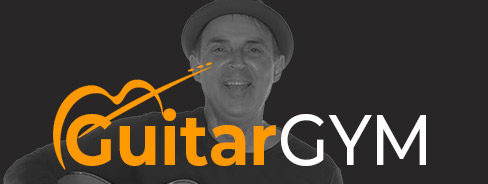One of the questions I get asked often is “how do I know when to move on?”
While there's no exact formula I have found something that works for most people. I call it the 80% rule.
The idea is you practice something until you feel like it's roughly 80% of where you think it should be on the way to perfect. Then you move on to the next thing.
You don't want to stay on one thing until it's perfect… or even almost perfect. You're likely to get stuck, make very slow progress and feel frustrated.
On the other hand, if you brush through exercises and move on too quickly you'll begin struggle and feel more and more incompetent. That too is a recipe for feeling overwhelmed and frustrated.
The important thing to remember is that 80% is not an exact number and your judgment is all that matters. When you, in your judgment, decide it's roughly at 80% it’s time to move on.
You’ll be making your judgment on what you've seen in the videos and how good you think it sounds. Over time you'll find that you get better and better at judging when you can move on and still feel good about your progress.
So what about that last 20%?
As you progress and occasionally review you'll find that you naturally shore up the final 20% over time. In fact, there'll be times when you go back to some of the previous songs or exercises and be amazed at how much easier it is and how much better it sounds than when you first learned it.
Does the 80% rule always work?
The 80% rule works well for progressive material that's moves step by step. When one thing builds on another you want to make sure you have enough competency with the previous step before moving on. This applies to the Beginner's Journey course as well as many of the courses in the RGS Library that are step-by-step. When a course is not designed that way, such as Supersonic Warm-up Exercises, I tell you right in the introduction to the course.
It’s not a useful rule for material that is non-sequential... and especially the Daily Practice Sessions in the Guitar Gym. You really do need both types of learning material.

Think of learning a language. It's very helpful to have progressive grammar lessons. In addition, courses that teach phrases and pronunciation in a sequential manner could boost your learning progress tremendously.
At the same time, it's critical that you have opportunities to just speak, and even fumble for the right words or to understand what someone says. In fact, as painful as it might be, this is where most of the learning actually happens.
I learned this the hard way years ago when learning to speak Spanish. After 2 years of classroom lessons (where, btw, I got perfect grades every quarter) I found I still could not speak or understand the language in conversation.
Somewhat frustrated I signed up for a course that involved going to Spain and living with a Spanish-speaking family for 2 weeks. They were instructed not to speak a word of English. It was quite a humbling experience, and often painful… though now I look back on it as one of the highlights of my life.

Here’s the thing…
At the end of two weeks of fumbling, I could communicate in Spanish. It was like night and day. I got over the hurdle of being to shy to speak and looking foolish. I made friends that spoke Spanish and spent time with them. Though the learning wasn’t sequential my abilities progressed at an incredible rate compared to the previous two years.
Now I easily travel to Spanish speaking countries and enjoy communicating with people from all over the world. And I'm still learning and improving ... which makes it even more fun.
I'm sure the years of studying grammar and sequential lessons at school helped. But I also know I would have progressed much sooner if I've been willing to be uncomfortable and fumble a bit at the same time.
The language of the guitar is no different. Do the sequential lessons, but also be willing to stretch. The Guitar Gym is one place that I provide this experience. Other great opportunities include jamming with friends, going to Open Mics, recording an exercise or song and posting it in the forum, and trying different Quick Win lessons in the RGS Library with no expectation of mastering them.
You need to login or register to bookmark/favorite this content.